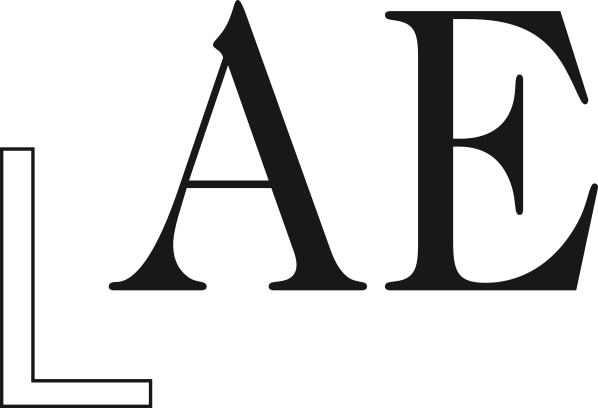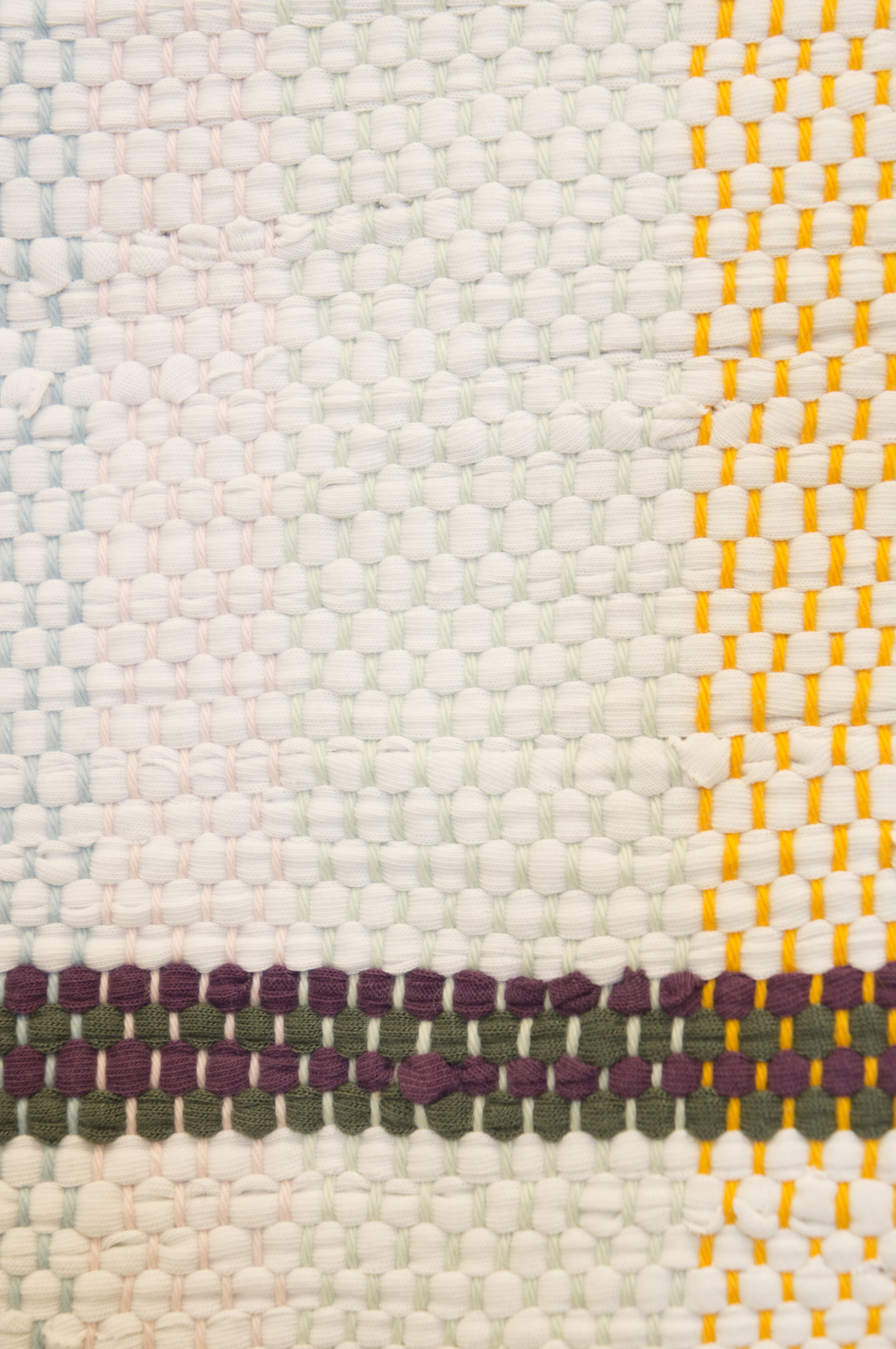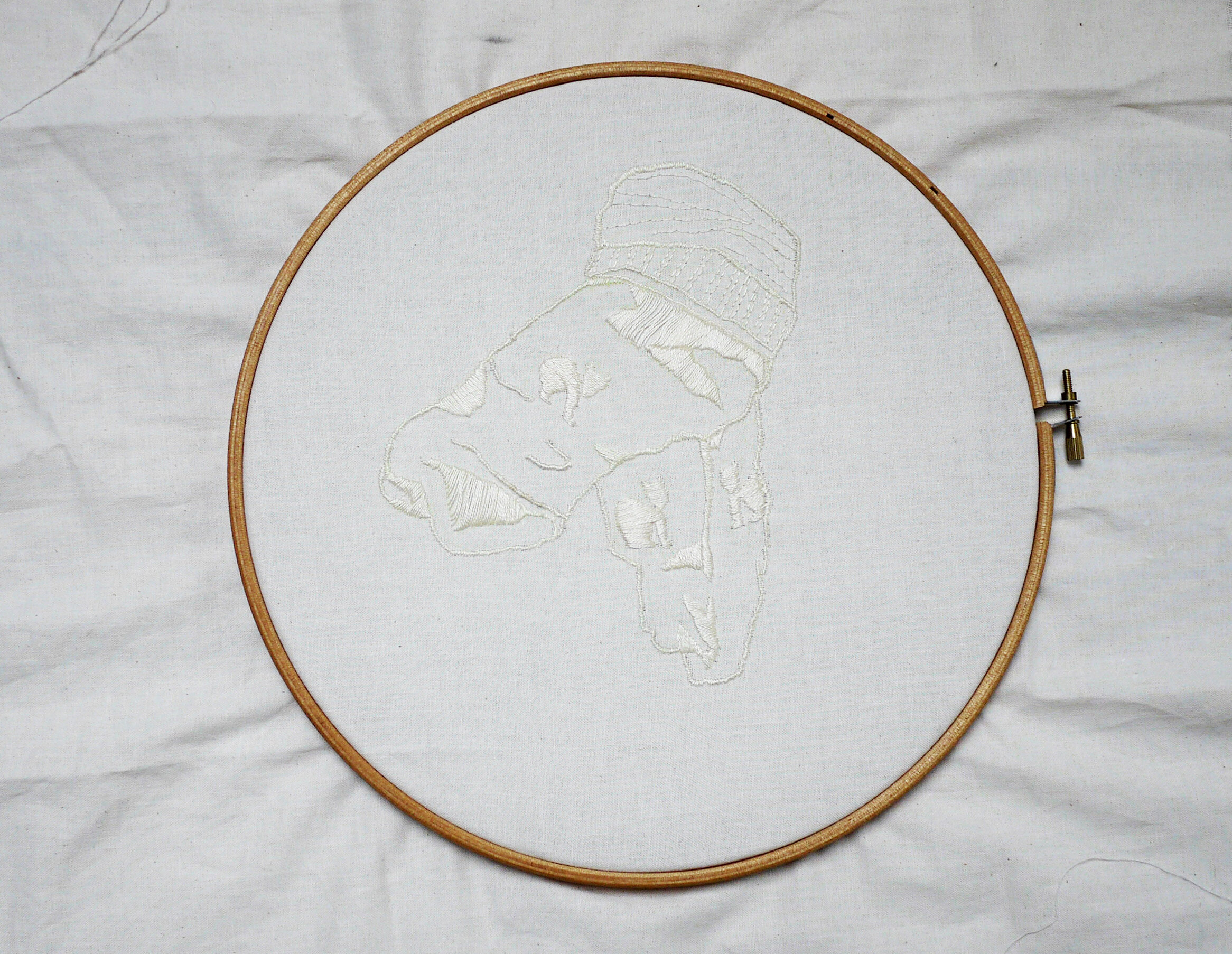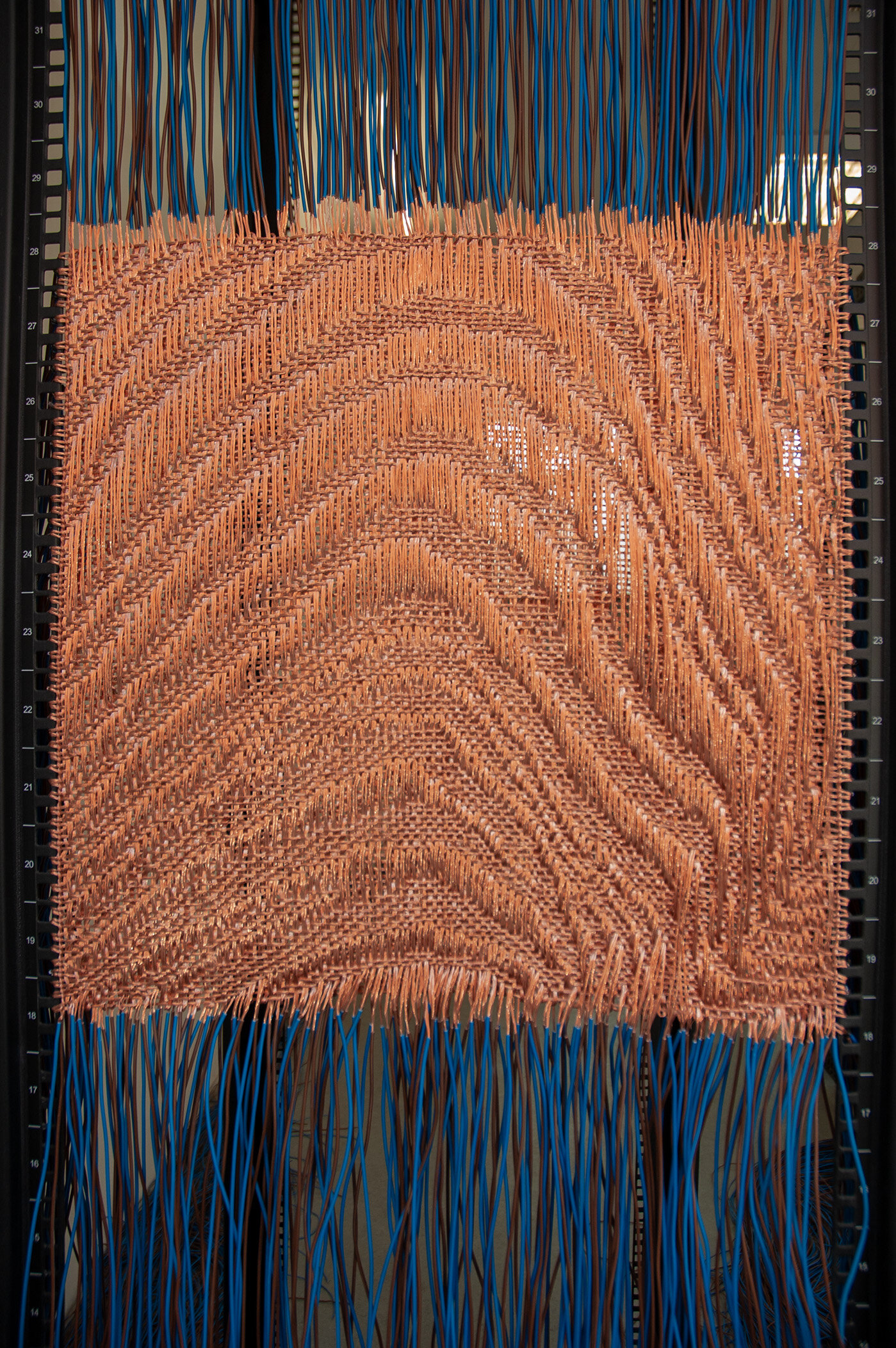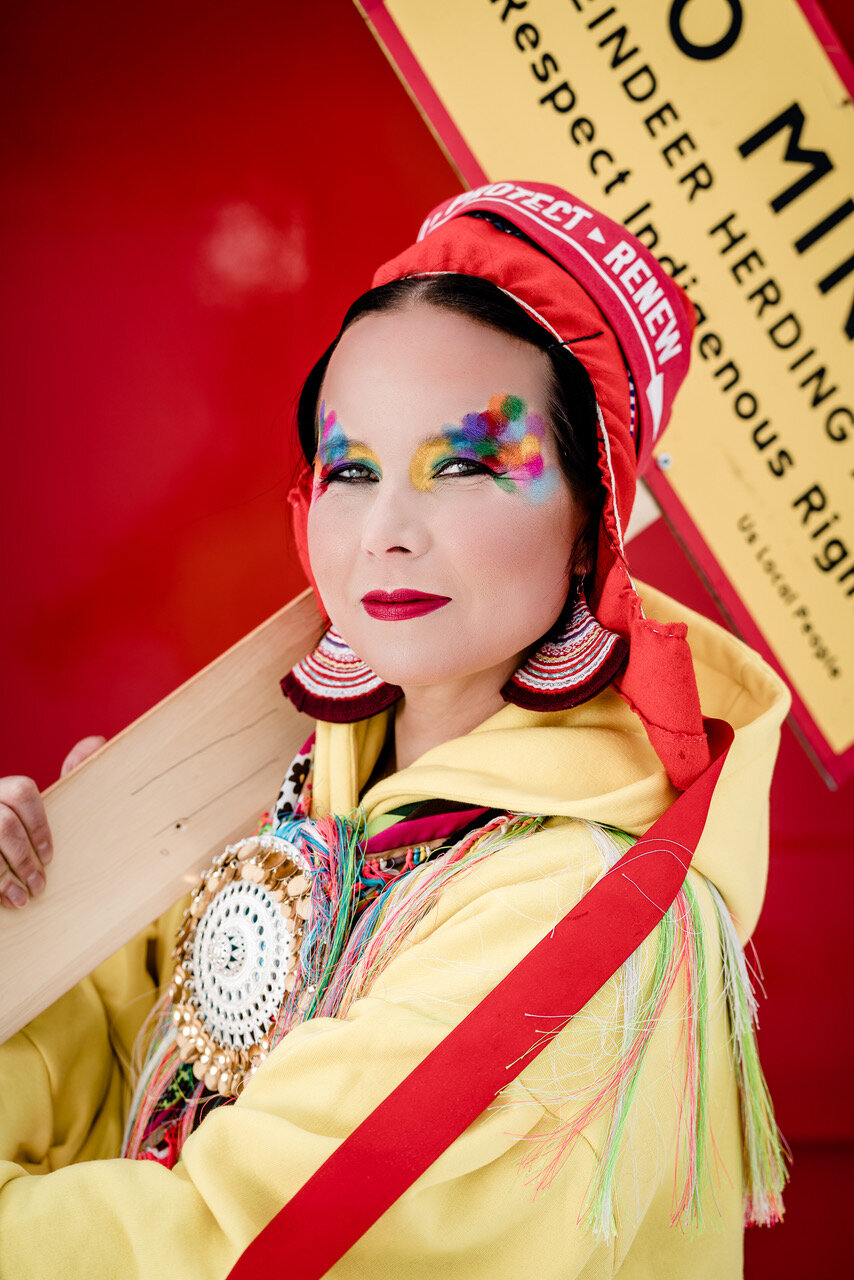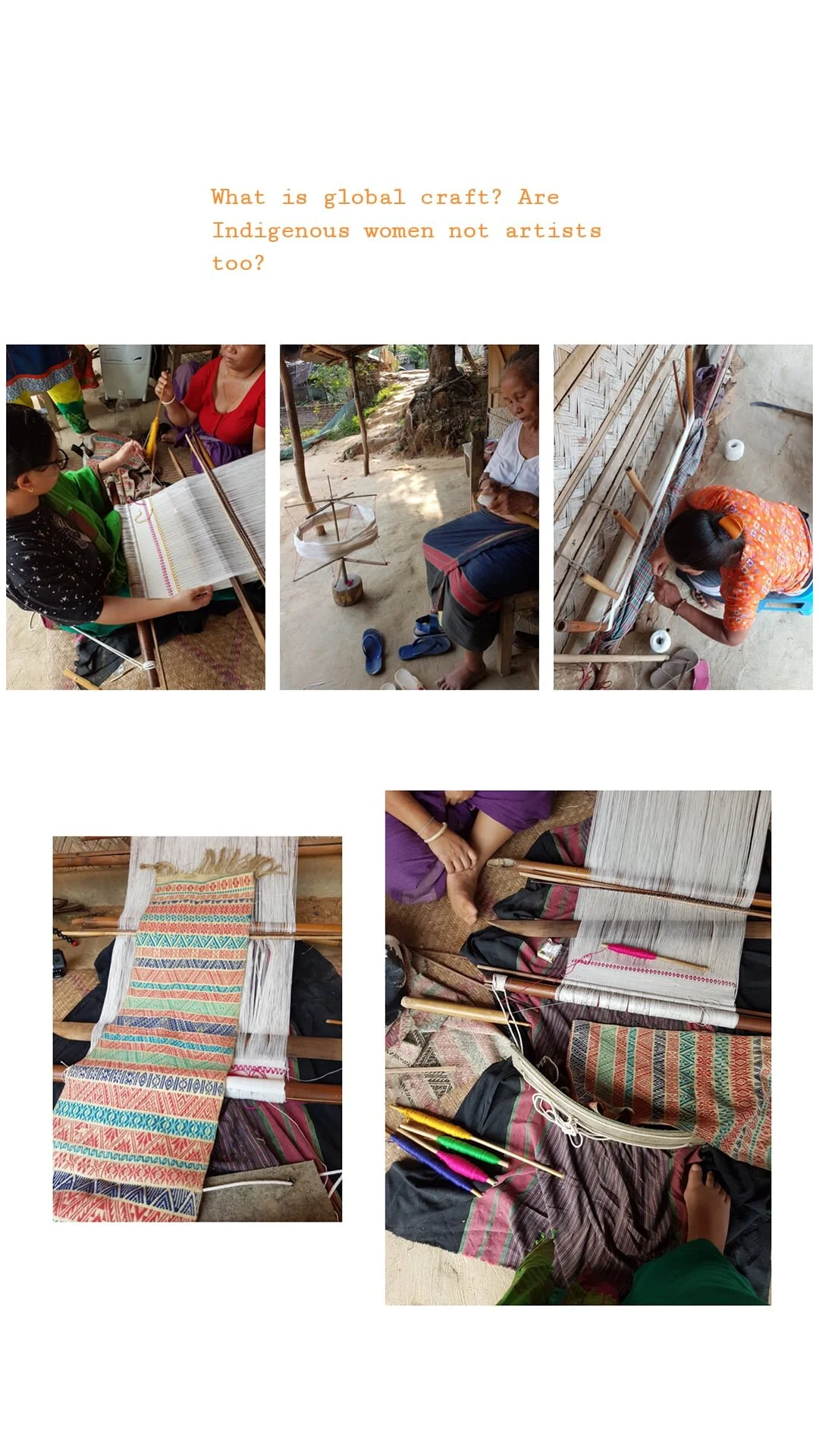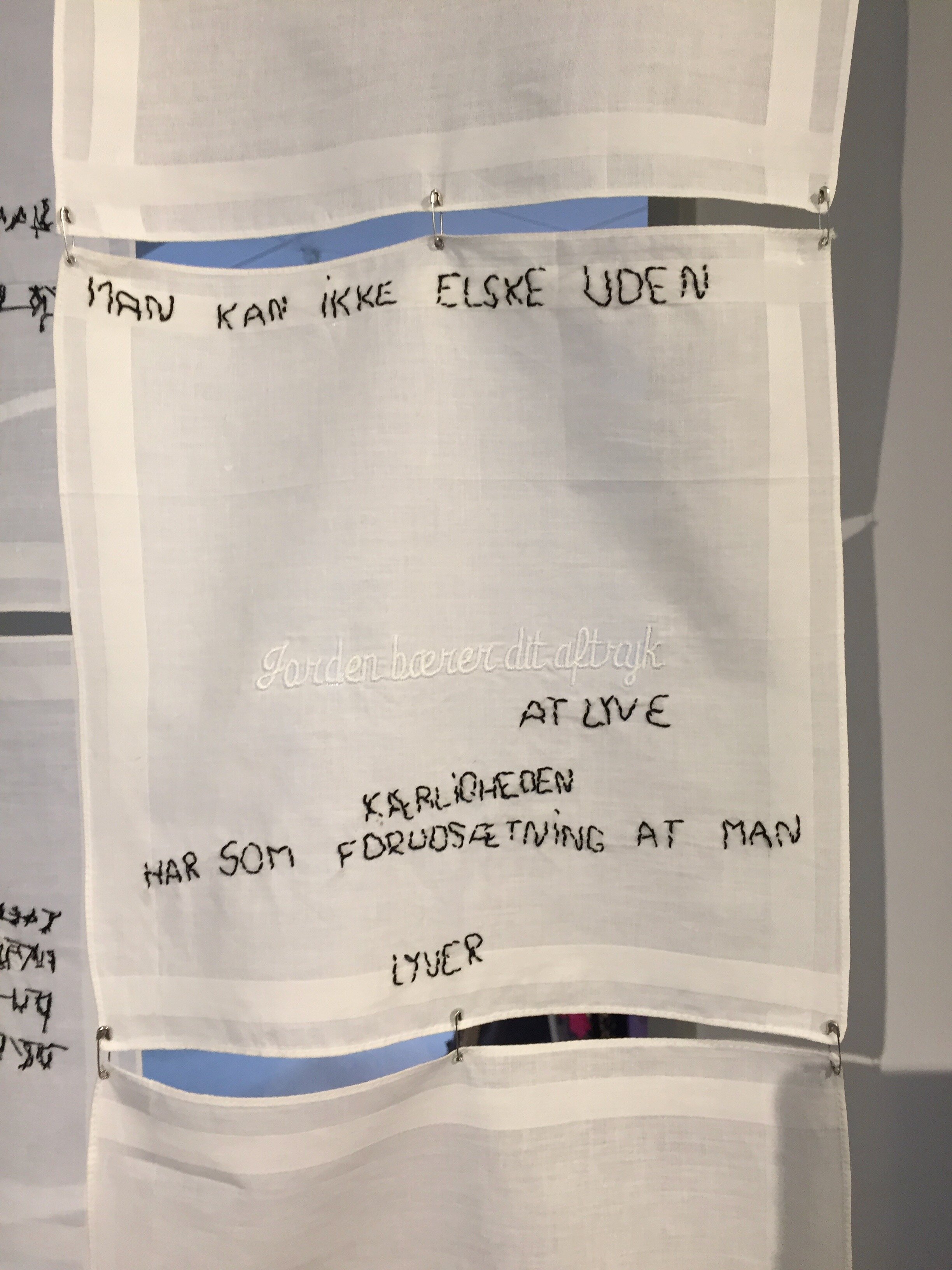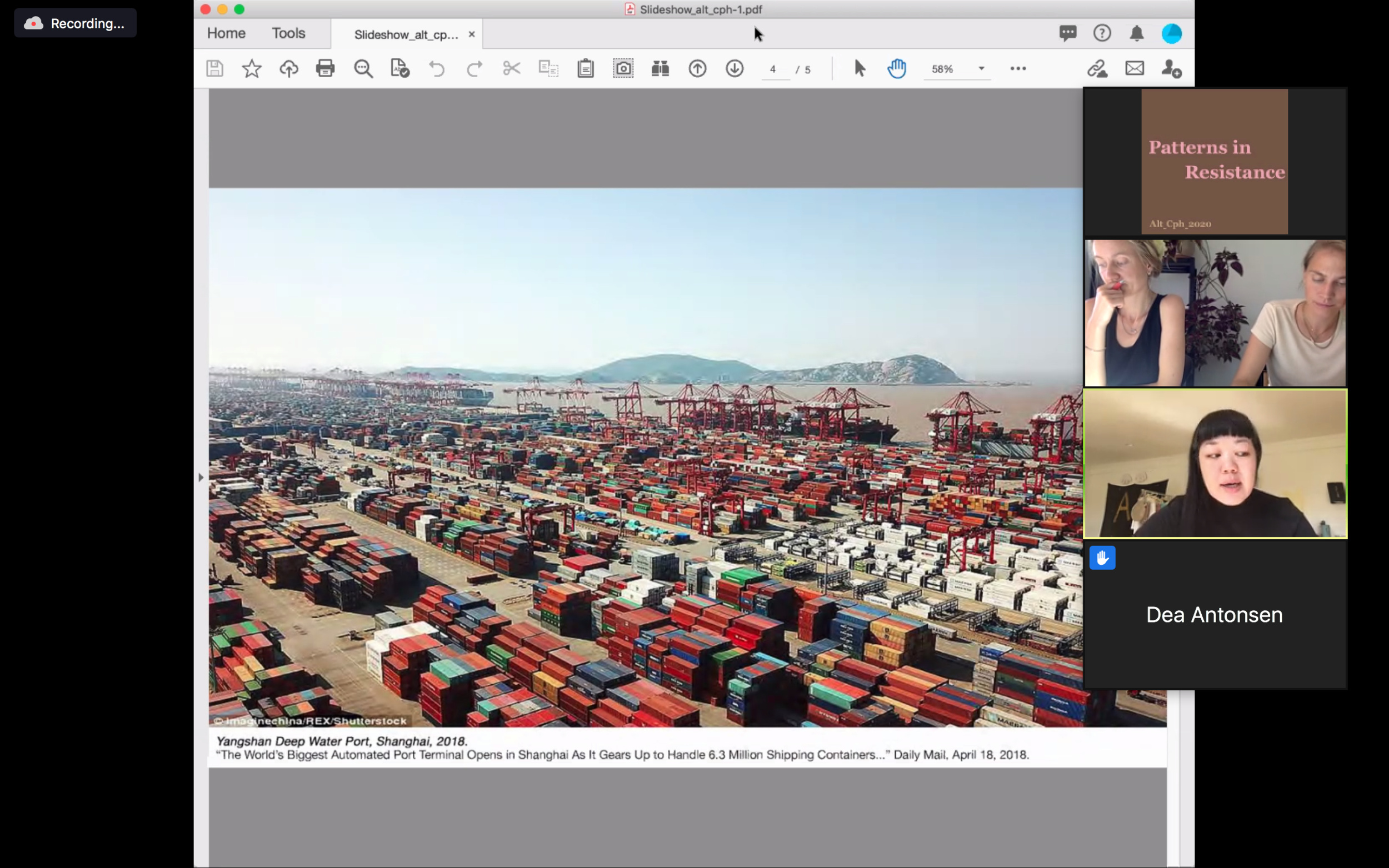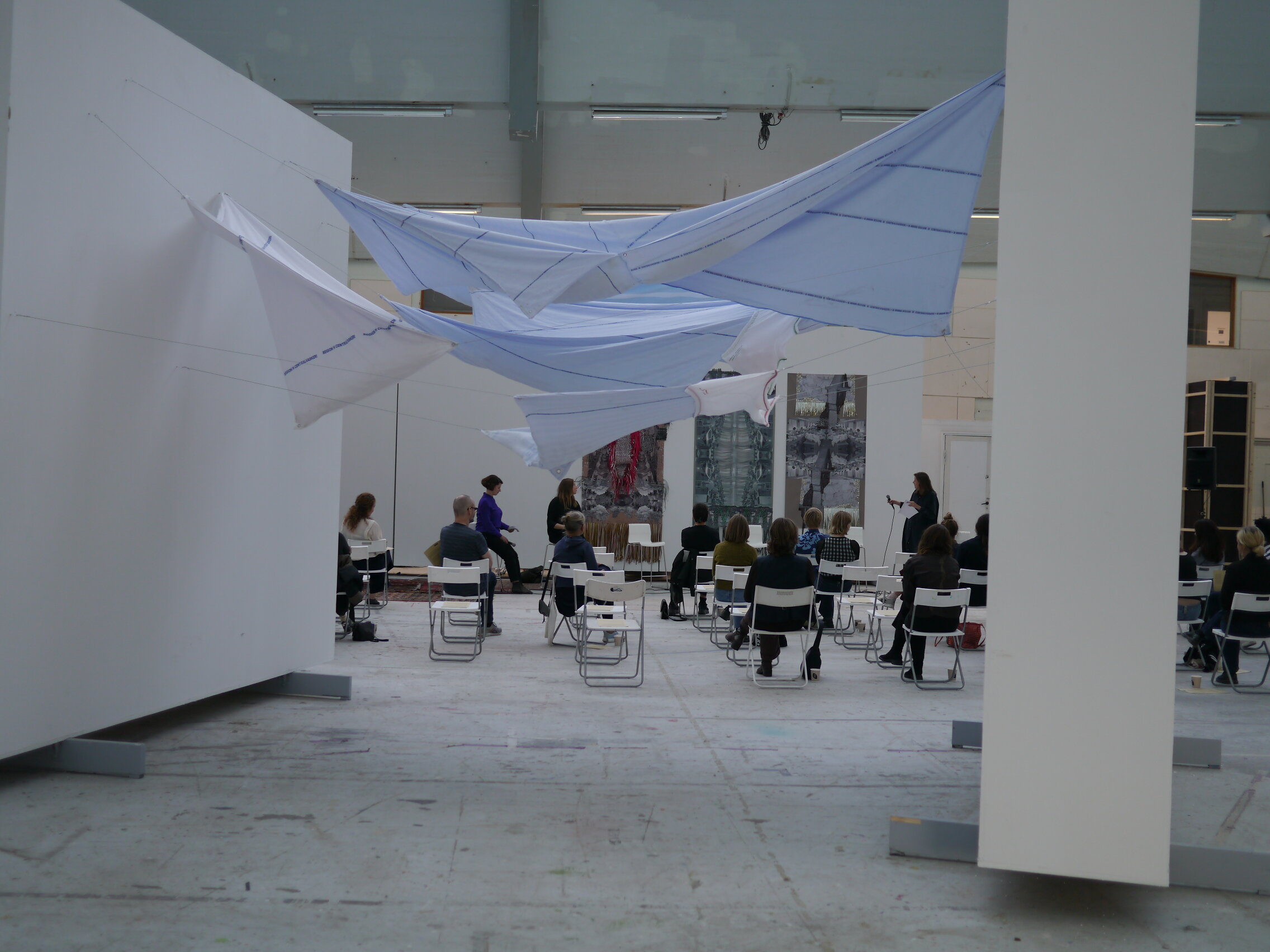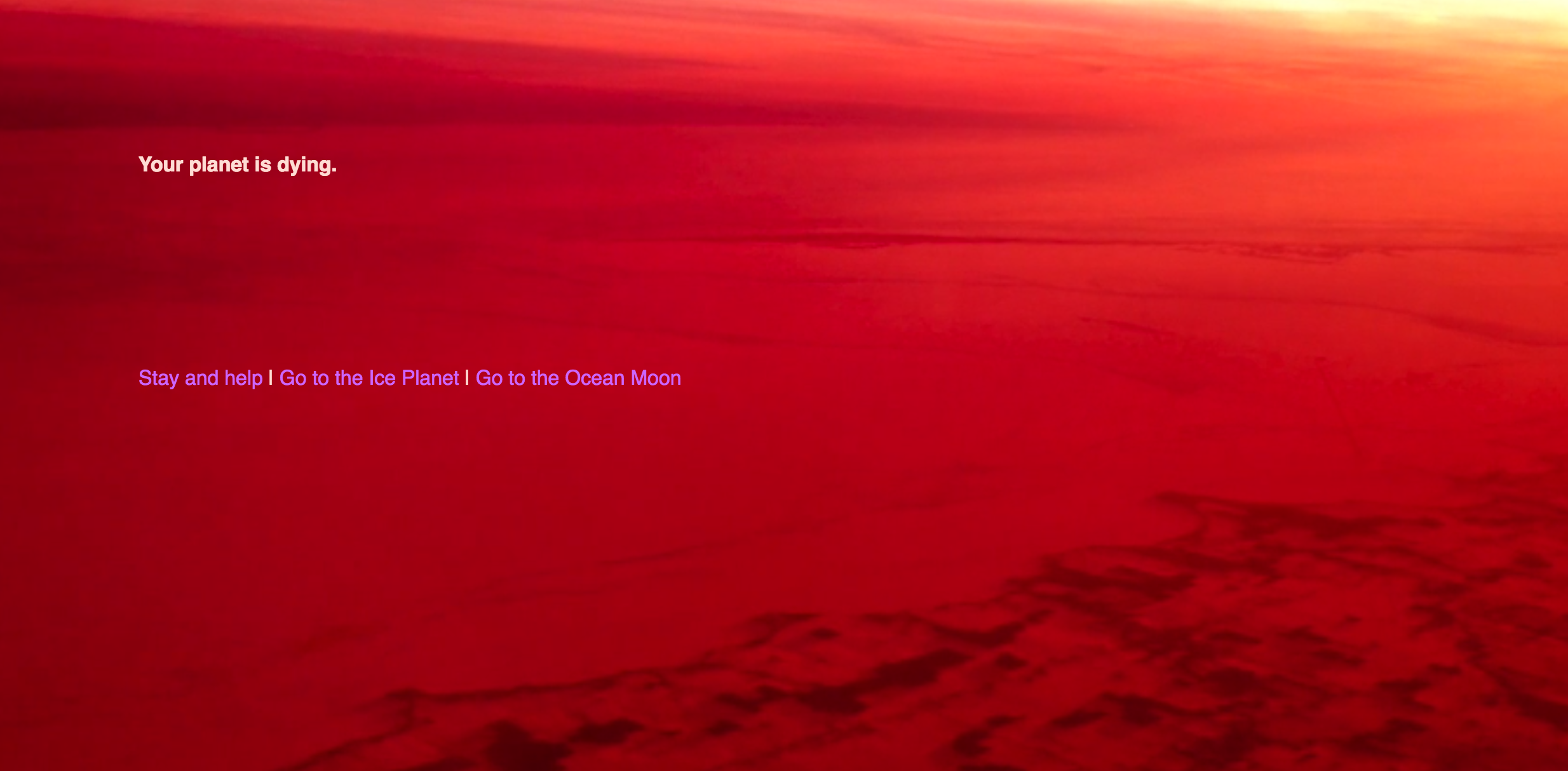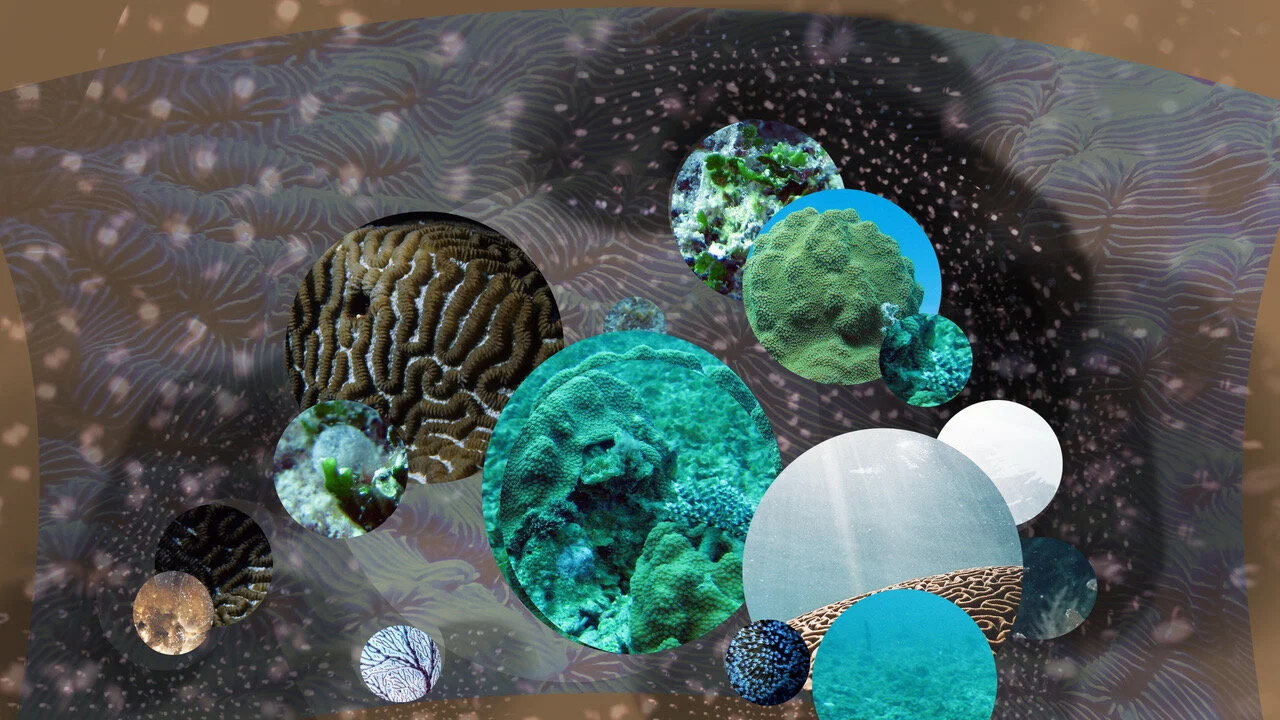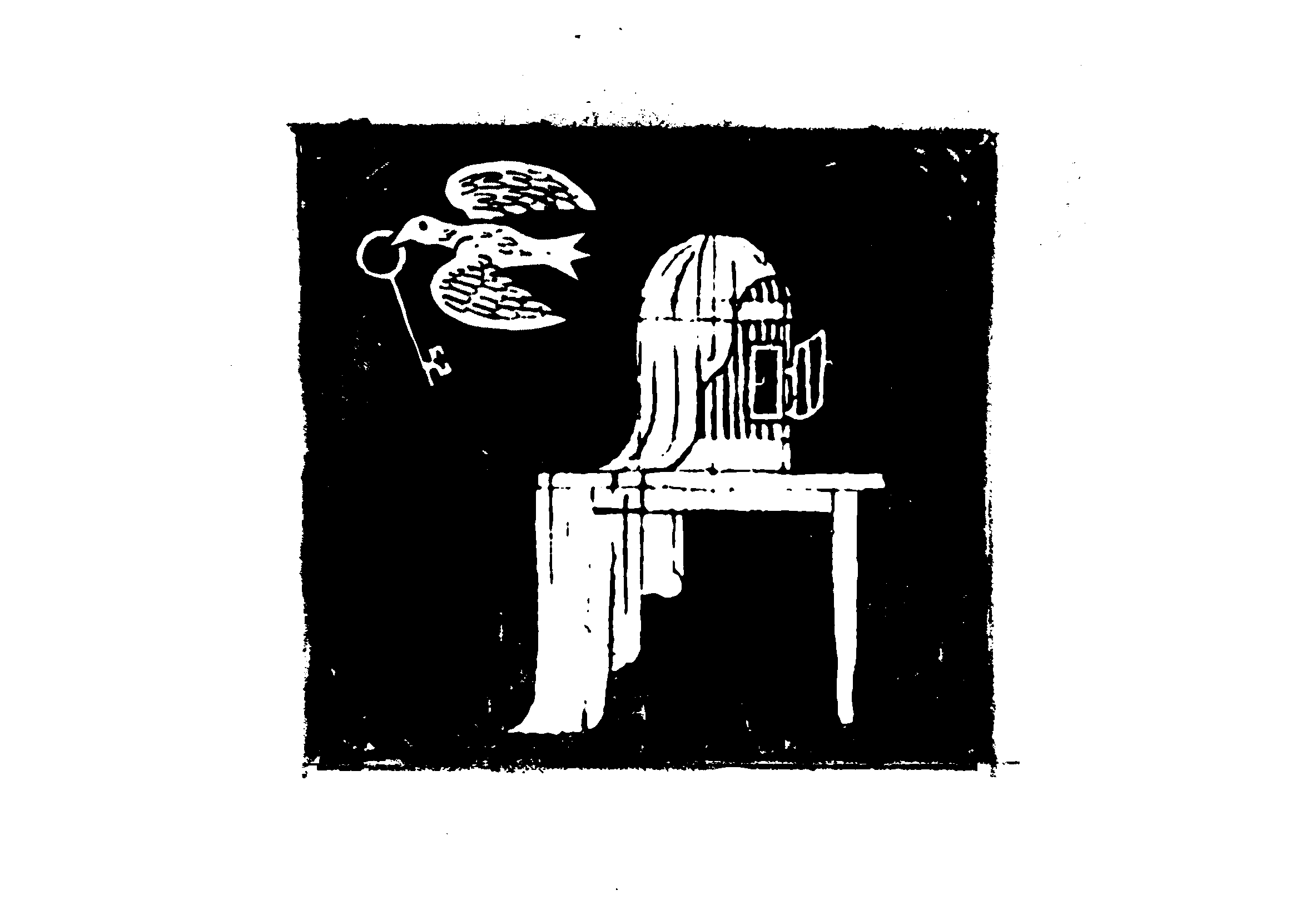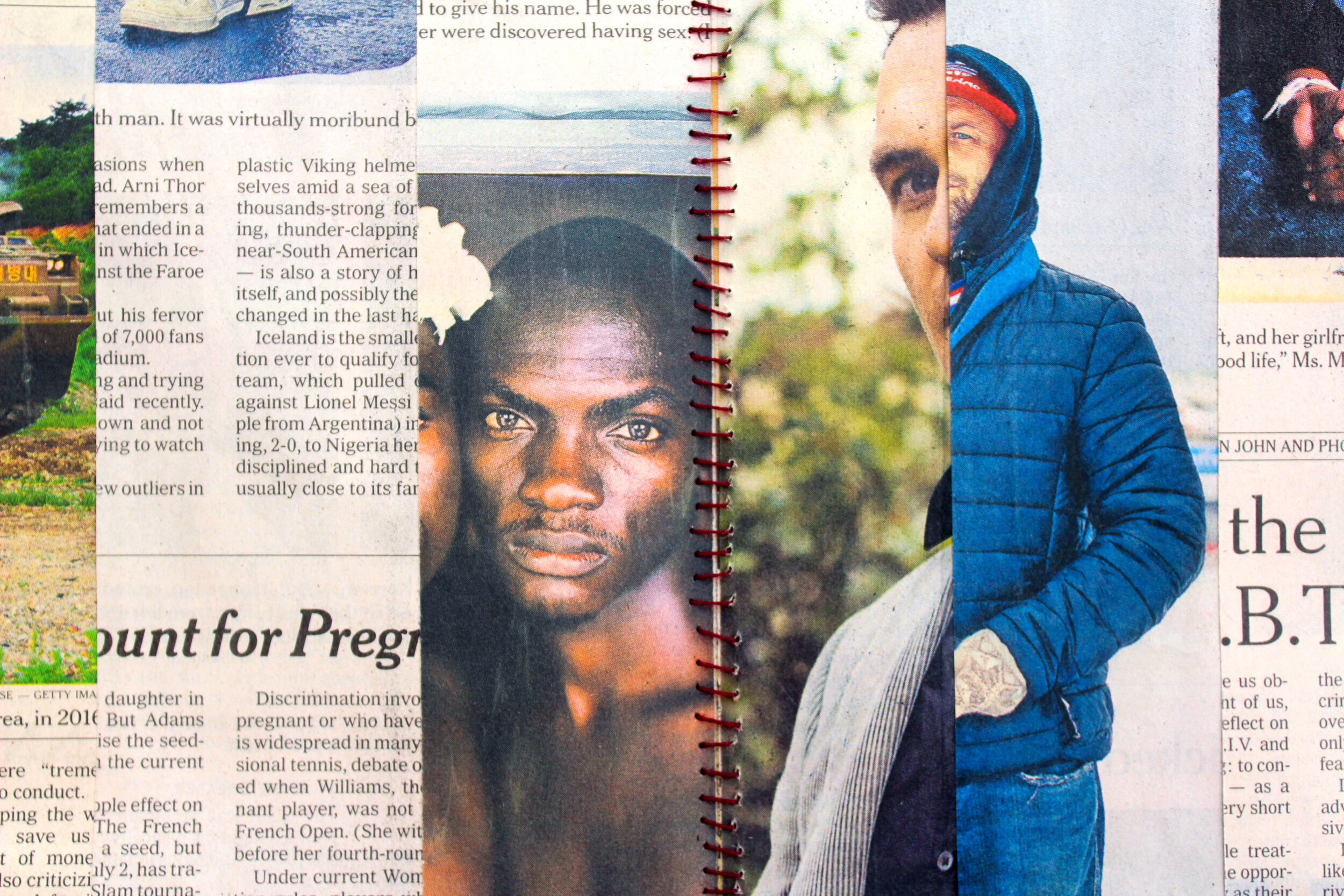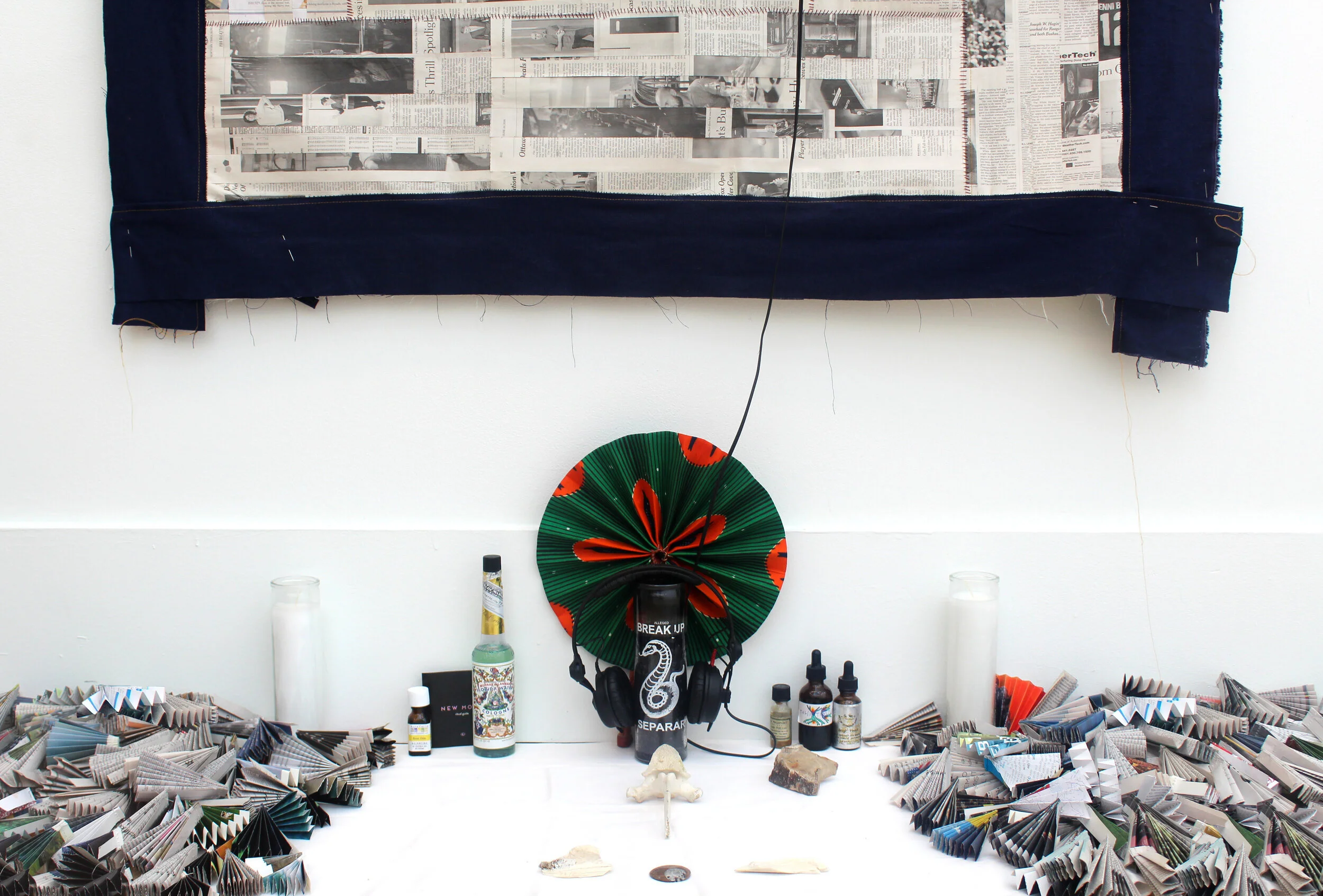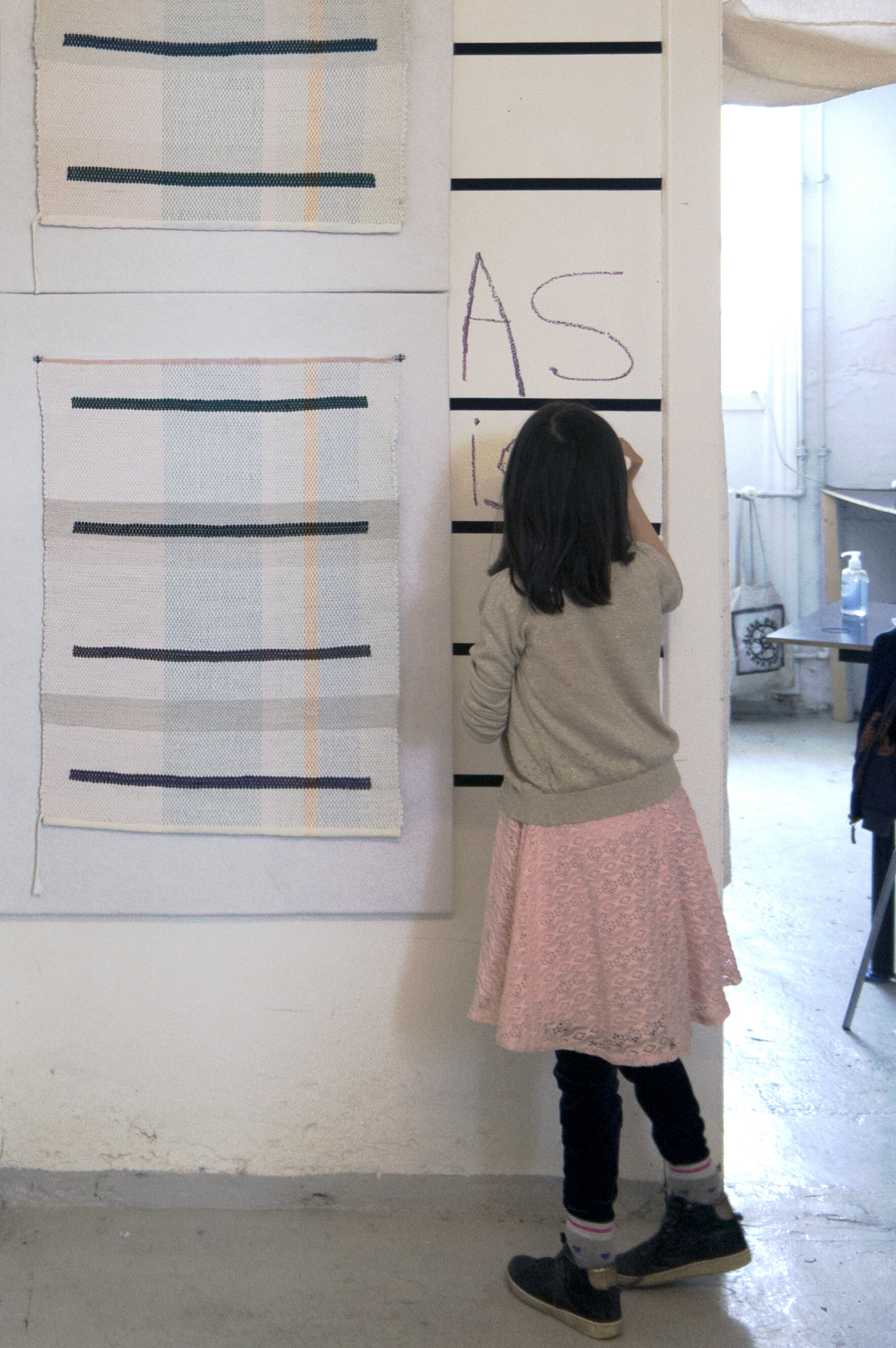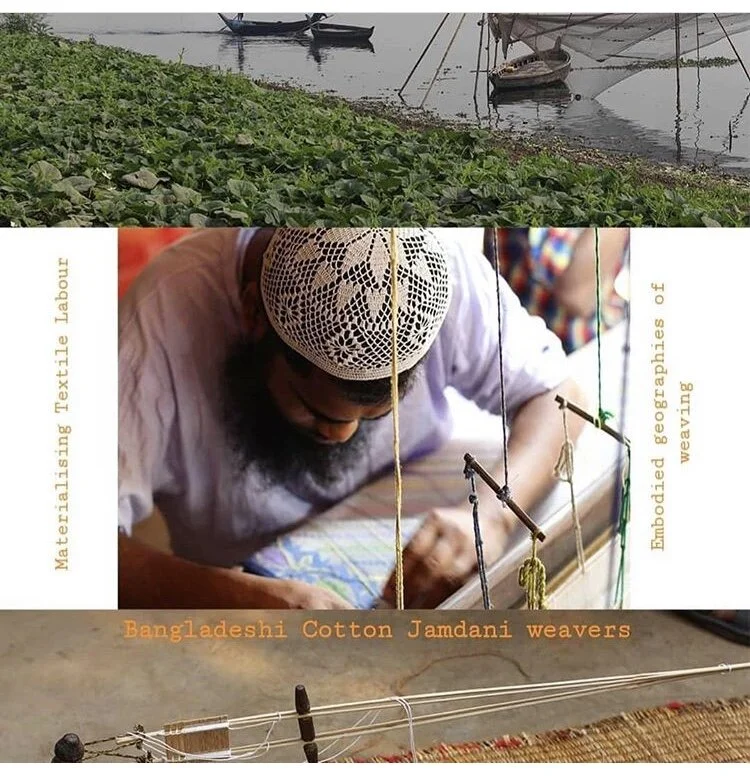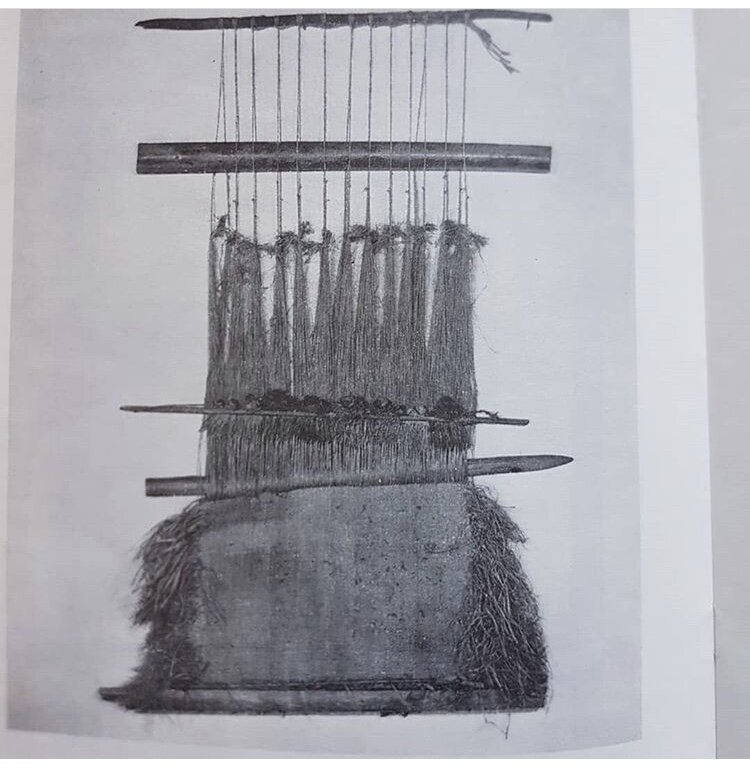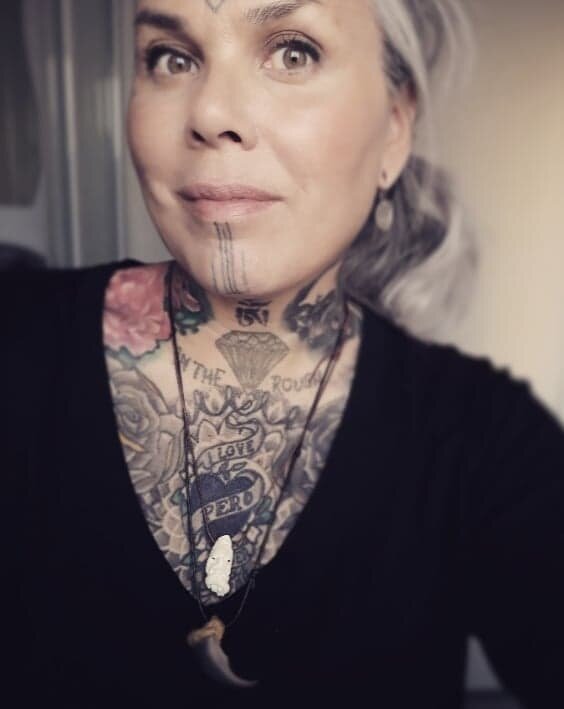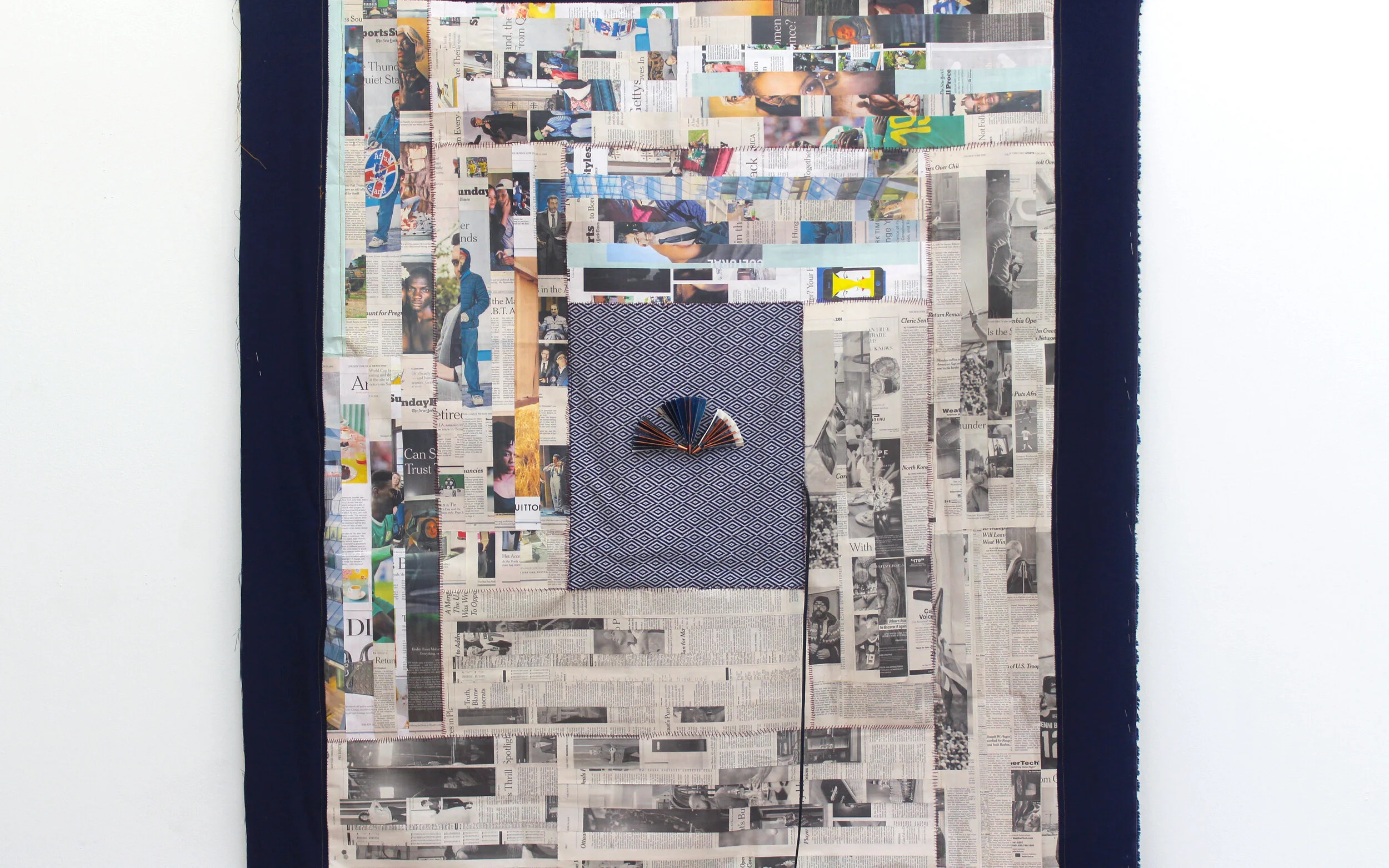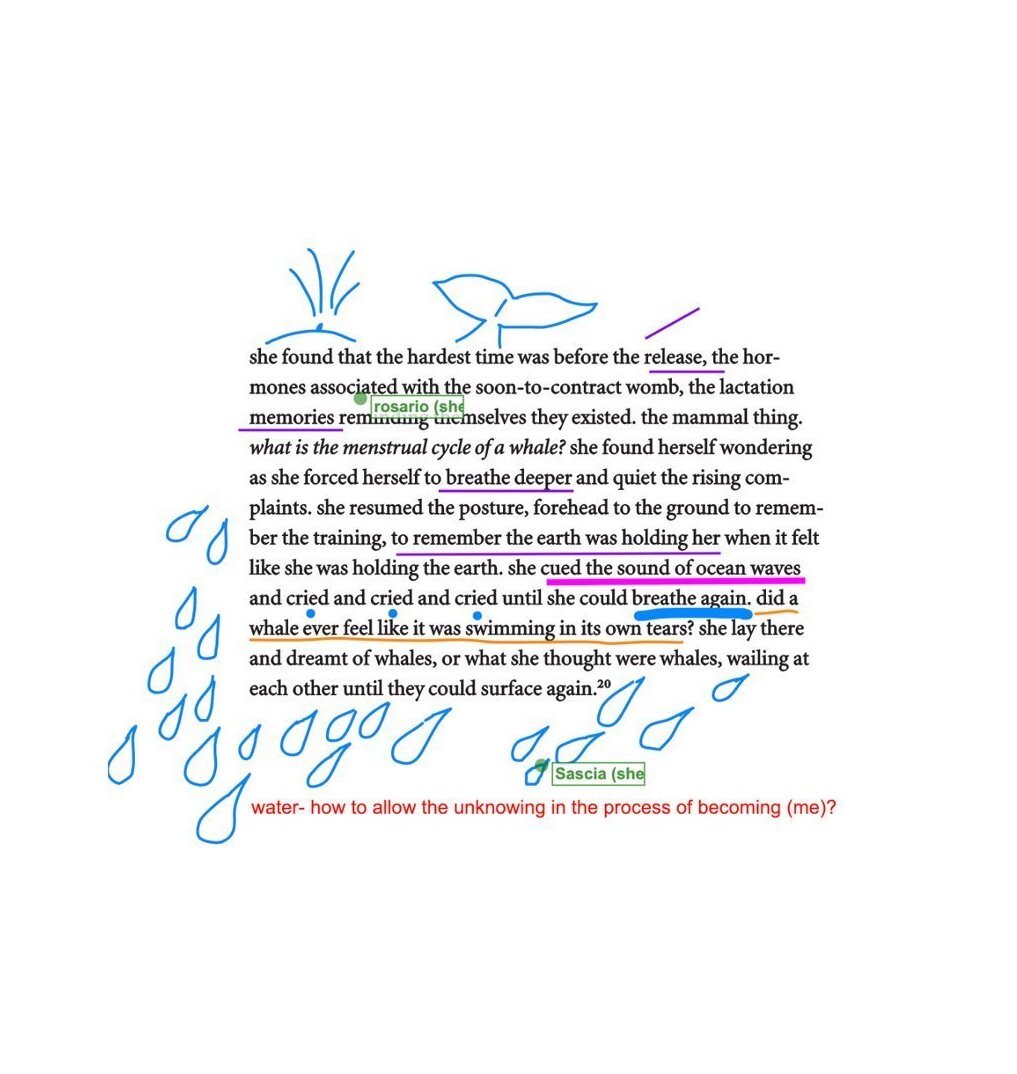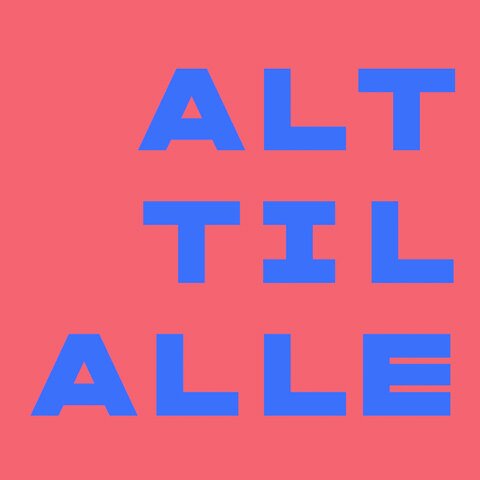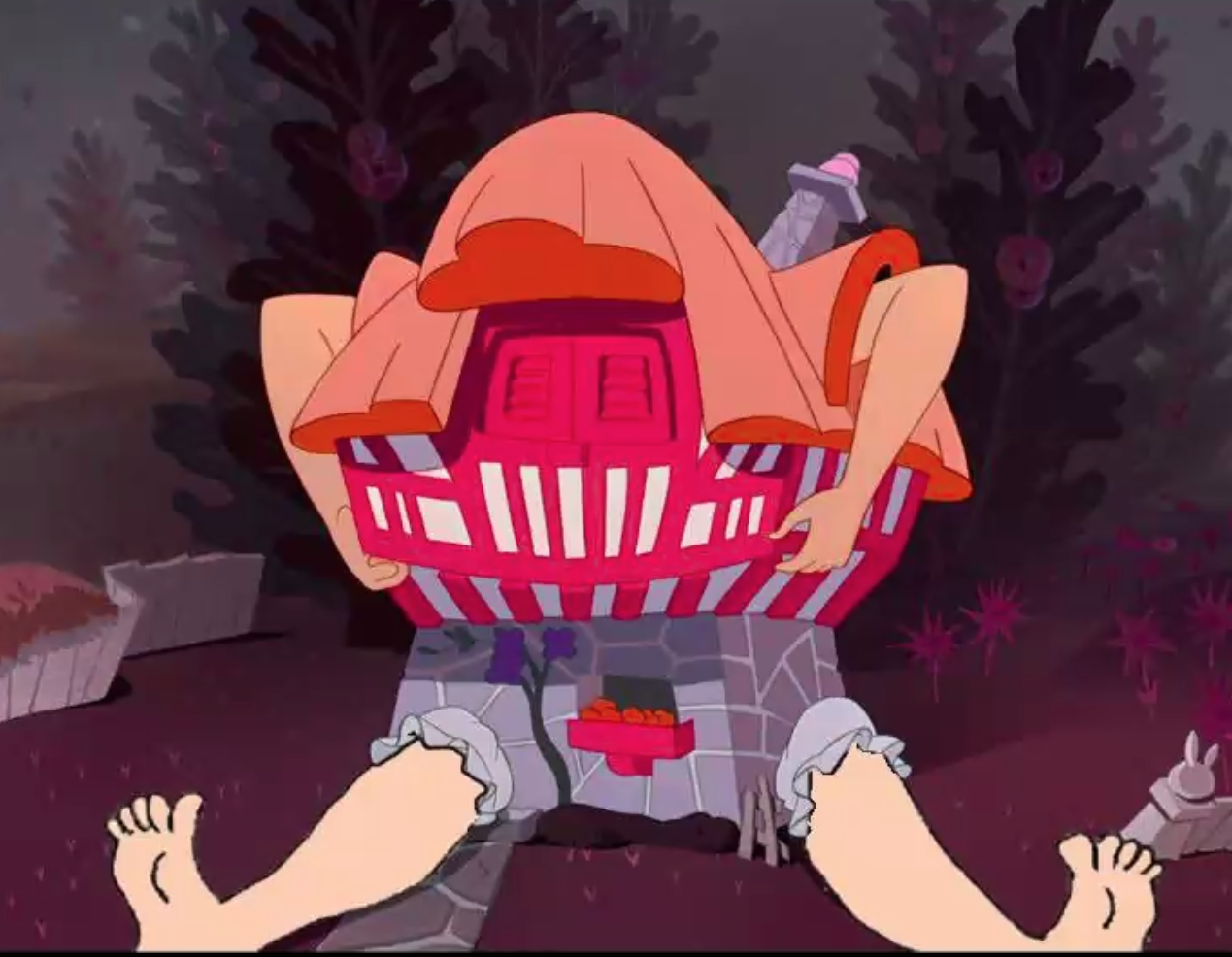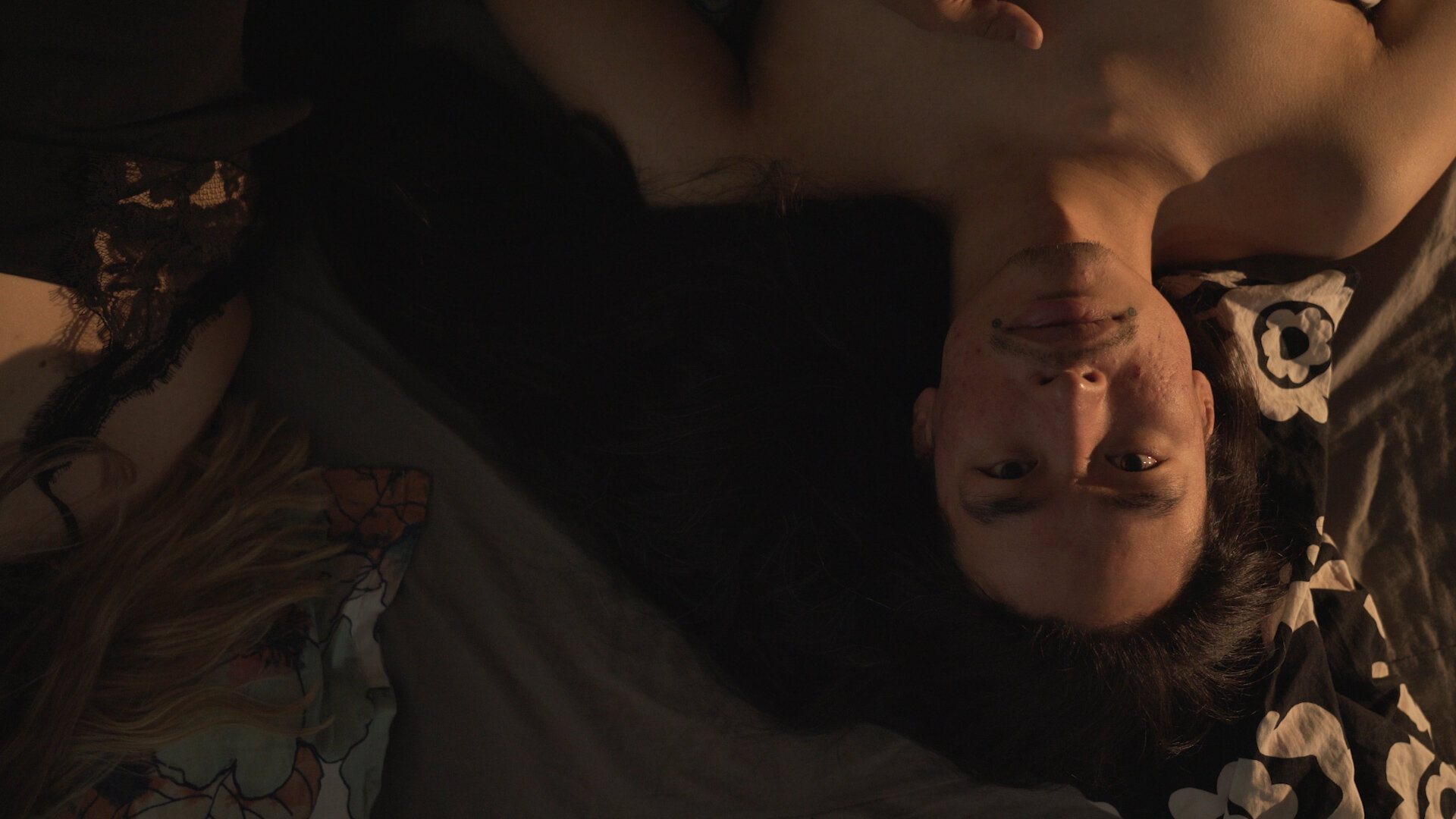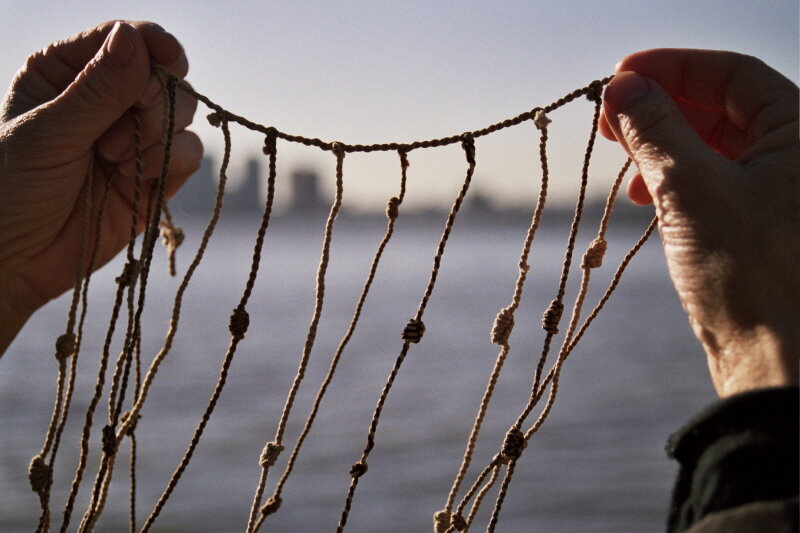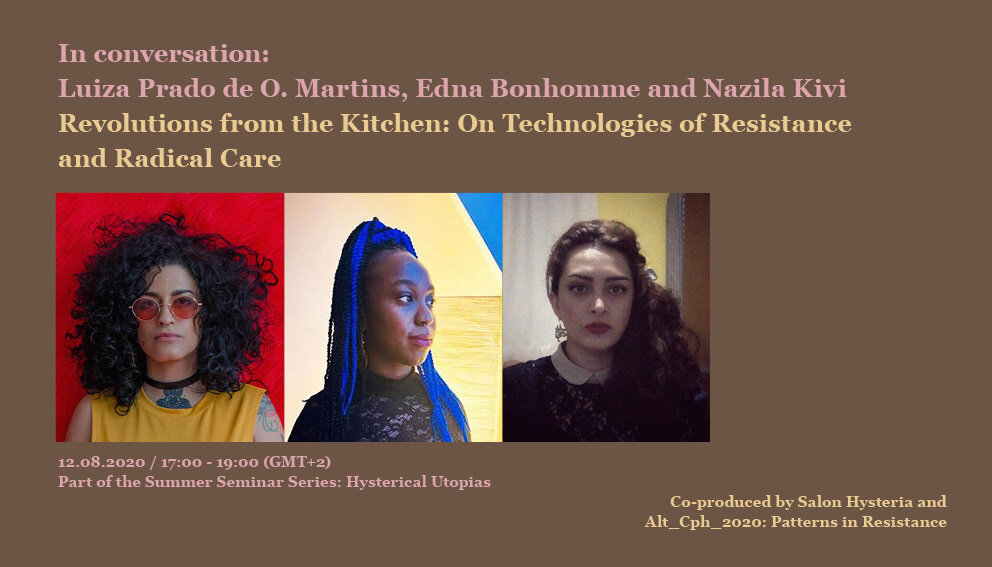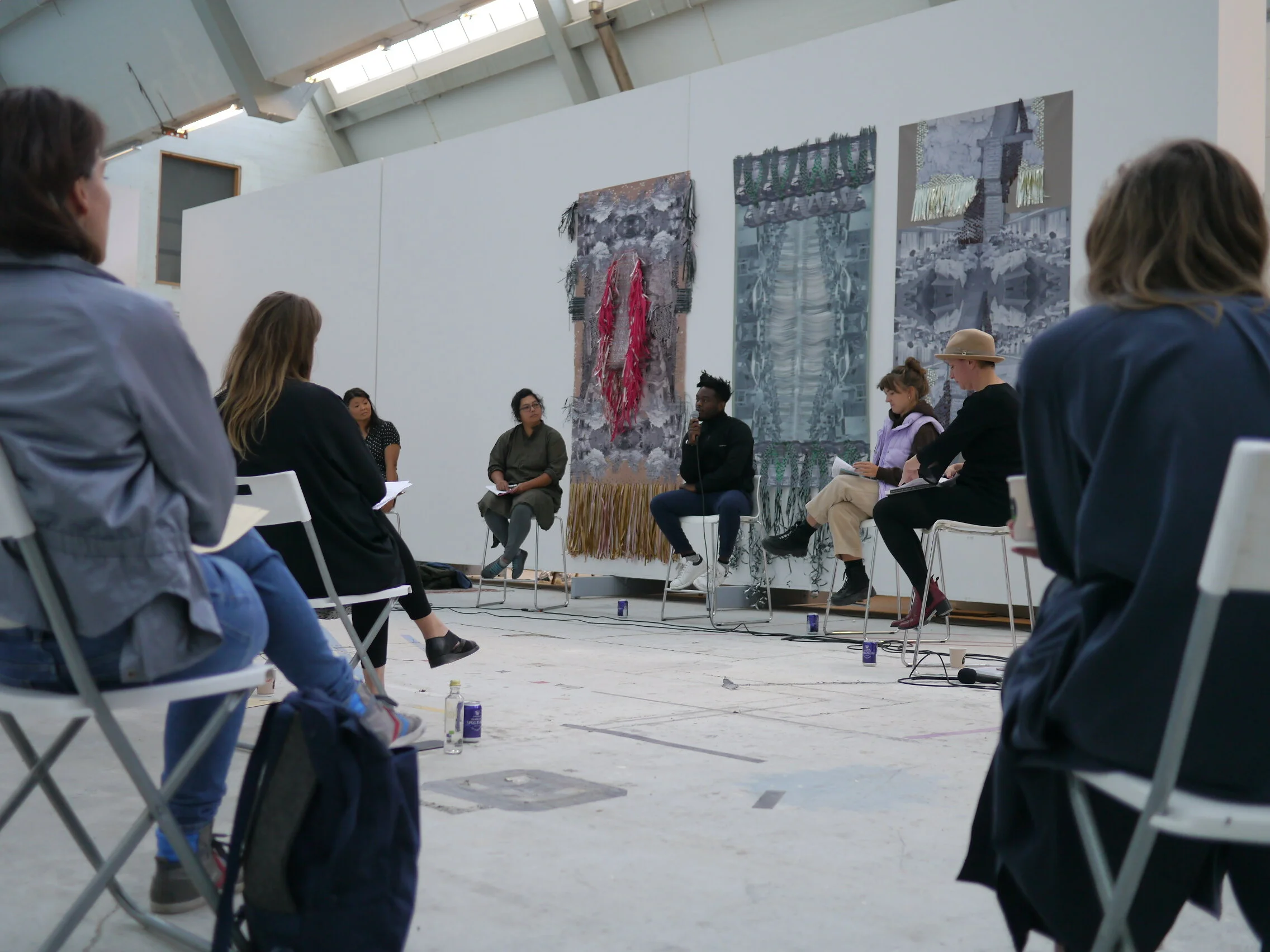Patterns in Resistance
Alt_Cph is an independent biennial gathering selected institutional partners, artists and contemporary artist-run and alternative exhibition spaces across Europe. Each biennial is curated by a new team and involves its audience in the pertinent questions of the present. Alt_Cph 20: Patterns in Resistance is curated by the Laboratory for Aesthetics and Ecology. In collaboration with a number of Danish, Nordic and International stakeholders Patterns in Resistance – in Danish, Mønstre I modstand – examines the intersections and nodes between the labor of the hand and a multiplicity of analogue and digital technologies.
Patterns are connections in the world. Patterns make meaning, they foment and carry forth identity, origin and culture. Patterns are fabric and pixels, weaving and programming. Patterns can pass on traditions, recipes, prompts and scripts between humans and machines, across oceans and generations. Patterns also break deep time in efforts to gain greater profit and faster data processing. Patterns are imprints of repressive structures of the status quo. As motors of production, patterns enable and sustain inequality and exploitation, mapping old and new silk roads. Patterns can maintain and imprison, new patterns emerge as critique and resistance and old ones are restored, paving way for other technologies, possibilities, identities, communities and worlds.
In Greek Mythology, Philomela is raped by her brother-in-law who cuts out her tongue in an attempt to silence her. Instead, her loom gives voice to her story as she weaves a depiction of the crime to which she is victim, enabling revenge for herself and her sister. The myth of Philomela draws an intricate connection between women and weaving which is not rooted in the normative docility connected to crafts but in a furious potential for resistance as the tapestry becomes a tool and technology of expression and revenge. As a practice and a form of labour historically coded within the feminine, thread- and needlework has played a double role as both a means of suppression (a felicitous activity for women’s idle hands), and a potential means of articulation and resistance. As Philomela, silenced women – and other marginalised bodies – have turned to crafts in order to practice a resistance hidden in plain sight.
Although crafts and technology are often thought of as opposites, the interconnections between them are many. Ada Lovelace, the noblewoman credited with the invention of the computer algorithm, was inspired by the binary system of weaving. Indeed, the first computer chips and digital data storage devices were hand wowen with copper thread by female factory workers. Technologies are laboursome, they require work. However digital, they command and determine ‘real’ material and bodies as they (re)produce reality and as they safeguard and develop some worlds, all too often at the expense of others.
We ask: which kinds of technologies sustain which kinds of bodies, stories, worlds? For whom, and on what terms?
In The Carrier Bag Theory of Fiction, Ursula K le Guin proposes the technology of the woven bag as a tool of care, and the work of gathering and carrying as the foundation for human technological evolution. Our tools for survival have been supple and multiple for centuries and the work of care is foundational to survival. Textile itself is just one kind of those everyday materials which we usually do not consider through the lens of technology. In contrast to the hard materials of the weapon, textiles decompose and perish, leaving no or different kinds of traces throughout histories. As they contain and embrace, regulate body heat and make space habitable, textiles inhabit the soft spheres of the home and of the body, the technologies of making livable, and carrying forth life.
Implemented as a universal, the word technology often evokes a distinctively Western enterprise: a child of the genius fathers of the European enlightenment, matured in the industrial revolution and fully blossoming in contemporary capitalism. The knee-jerk definition of technology has been – and continues to be – blazoned and weaponized within Western, colonial concepts of the civilised and the savage; advanced cultures and developing ones. And when the technological skill and capacity of ‘other’ cultures surpasses or challenges “our” capabilities, reluctance or sheer anxiety over losing a universal mandate to scientific (and other kinds of) supremacy rises. This idea grounds technology within the myth of Western culture as an ubiquitous modus operandi and guideline for all other cultures to aspire to and to align with. While the myth of technology mastered by Western inventors and developers remains at the core of the digital mainstream, we continue to ignore the inequalities within technological development. Central to the western, patriarchal idea of technology is the fetishisation of the new. Speed, development, transgression, progress, all of these work together to uphold inequities, alienation, stress, to create ledges and crevasses in our internal and external landscapes. To uphold Western supremacy, this concept of technology ignores the scientific hallmarks and discoveries of non-western cultures, and devalues the manifold, highly complex technologies of the home: midwifery, rearing, gardening and cooking, to name a few. Patterns of knowledge which sustains life everywhere in the margins of public life: patterns of maintenance, of sustenance, of repetition and hand-over that could or do provide some of the infrastructures needed to sustain our emotional economies, while also providing the grounds for the high-tech superstructures that continue to generate and unfairly distribute wealth within capitalism.
And with the institution of art, too, a clear distinction between crafts and fine art continues to operate; crafts belonging to the practical realm of utility and mere decoration (traditionally relegated to women and non-western cultures), and fine art as an elevated practice segregated from the subsidiary concerns of quotidian life. In art too, we must continuously invent the new, be networked, skilfully ride the wave of trends and success.
Patterns in Resistance is an attempt to instigate an opening, however temporary and imperfect, for pondering and engaging the convoluted junctions between the labour of the hand and the multiplicity of analogue and digital technologies. A space to understand how heteropatriarchal capitalims and ongoing colonial violence inscribe themselves into our technologies and into our bodies. With this project, we attempt to build a structure of care in uncaring times, a space in which we can meet to discuss and practice softer worlds. A process, a knowledge-generator, a gathering, an exhibition, Patterns in Resistance explores the potential for contemporary art events to build and hold space for conversation and collaboration across privileges and skills. With this project, we yearn for openings and softenings of institutional spaces and institutionalized knowledges.
Patterns in Resistance attempts to hold and to care for vulnerabilities and resistance technologies past and present by crafting space for co-production, conversation and collaboration. We dream of exchange, accountability and repair, of softness, resting and resisting. Of new patterns, palpable, abstract and speculative that we weave, code, braid, draw, hack, read, print, pearl, perl, purl and stitch together.
Patterns in Resistance borrows its title from an artwork by visual artist Mette Clausen whose artistic practice has been a big inspiration for the project.
The couplete program is to be found here and the threads and pieces of conversations, podcasts, texts and documentation of events are to be found here.
-The Laboratory for Aesthetics and Ecology, Curators of Alt_Cph 20, February 2020
LIVE PROGRAM:
Text and textile: Åse Eg (DK), Nanna Ánike Nikolajsen (GL/DK), Forfatterskolen (DK), Jessica Bebenek (CA), Ida Luka Holmegaard (DK)
Witches, work & womxn: Revolution from the Kitchen: Salon Hysteria (DK), YNKB (DK) & Silvia Federici (IT/US)
Launch of KULTURO #49: Gry Stokkendahl Dalgas (DK), Honey Biba Beckerlee (DK) & Ida Skyum (DK)
Opening Ceremonies: Winnie Soon (HK/DK) & Helen Pritchard (UK), Romi Morrison (US), Eric Snodgrass (SE), Loren Britton (US)
On Technologies of Resistance and Radical Care: Edna Bonhomme (US/DE), Salon Hysteria (DK), Luiza Prado de O. Martins (DE/BR)
Un/Making Pollination: Un/Making Studio (SE)
The Cyborg Diaries - Family Abolition, Reproductive Technology and the practice of Insurgent Care: Salon Hysteria (DK), Sophie Lewis (UK)
Tekstil, Taktilitet og Teknologi: Rosita Kær (DK), Amalie Smith (DK), Marie Louise Bech Nosch (DK) og Nynne Christoffersen (DK)
Decolonizing Technology - Crafting Indigenous Resistance: Salon Hysteria (DK), Maya Sialuk Jacobsen (DK/GL), Jenni Laiti (SE)
Jen Liu – A Better Life For The Workers presented by ARIEL - Feminism in the Aesthetics (DK)
Embroidery Workshop: I Tråd Med Verden (DK), Mo Maja Moesgaard (DK)
Materialising Gendered Archives - Weaving, Language, and the Global Textile Object: Raisa Kabir (UK)
Ord & Tråd / Palabra e Hilo: Cecilia Vicuña (CL)
Textiles in Resistance – workshop with micha cárdenas (US)
Enduring Time – On Violence and Care: Lisa Baraitser (UK)
The Art of Repair - Vulnerability, Labour and Local Entanglements: Hospital for Self Medication (DK), Foreningen for Kunst og Mental Sundhed (DK), Kristina Müntzing (SE), Rasmus Bring Pedersen (DK), Zeenath Hasan (DK/SE), Anna Rieder & Signe Lynge Andersen (DK), Staying with the struggle (DK), Byhaven & Terræan - Aktivitetscentret Sundholm (DK), Dzamil Kamanger & Kalle Hamm (IR/FI), Centre for Cyber Wellness (DK)
Patterns in Resistance includes co-curations by Ida Schyum and ARIEL – Feminisms in the Aesthetics.
Front page by Mette Clausen.
The Laboratory for Aesthetics and Ecology is represented by Dea Antonsen, Ida Bencke and Miriam Wistreich.
Curatorial assistance by Laura Gerdes-Miranda and Stephanie Serrano Sundby.
Patterns in Resistance borrows its title from the 2015 artwork Self Machine (Pattern in Resistance) by visual artist Mette Clausen. Clausen’s artistic practice has been a big inspiration for the project.
Alt_Cph is initiated by FABRIKKEN for Kunst og Design.
Among the previous curators are Anna & Esben Weile Kjær (2018), Råderum v. Charlotte Bagger Brandt (2016), Carl Martin Faurby (2015) and Anna Vallgårda & Henrik Menné (2014). Alt_Cph is established and hosted by Fonden FABRIKKEN for Kunst & Design.
Patterns in Resistance is realized with generous support from Det Obelske Familiefond, Københavns Kommune, Statens Kunstfond, Nordisk Kulturfond (Handmade), Knud Højgaards Fond.
